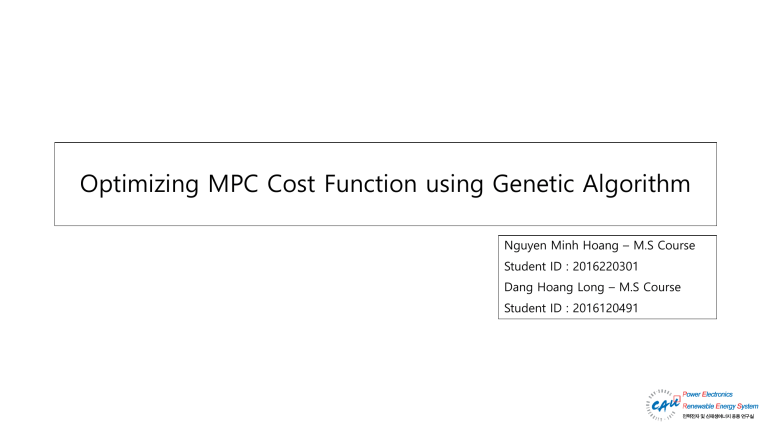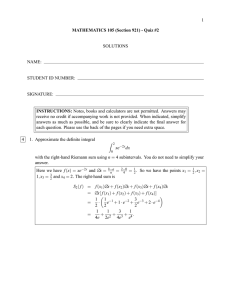
Optimizing MPC Cost Function using Genetic Algorithm Nguyen Minh Hoang – M.S Course Student ID : 2016220301 Dang Hoang Long – M.S Course Student ID : 2016120491 1. Define Problem 2. Proposed Optimization Method 2.1. Objective Function g = (ia* - iap)2 + (ib* - ibp)2 2.2. Variables iap = ia + (Tsp/L)*(va – R*ia) ibp = ib + (Tsp/L)*(vb – R*ib) 2.3. Constraints min[iap] ≤ iap ≤ max[iap] min[ibp] ≤ ibp ≤ max[ibp] Inverter controller using Optimization Genetic Algorithm • The genetic algorithm is a method for solving both constrained and unconstrained optimization problems that is based on natural selection, the process that drives biological evolution. The genetic algorithm repeatedly modifies a population of individual solutions. At each step, the genetic algorithm selects individuals at random from the current population to be parents and uses them to produce the children for the next generation. Over successive generations, the population "evolves" toward an optimal solution. You can apply the genetic algorithm to solve a variety of optimization problems that are not well suited for standard optimization algorithms, including problems in which the objective function is discontinuous, nondifferentiable, stochastic, or highly nonlinear. The genetic algorithm can address problems of mixed integer programming, where some components are restricted to be integer-valued.


